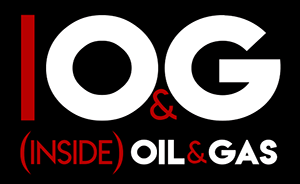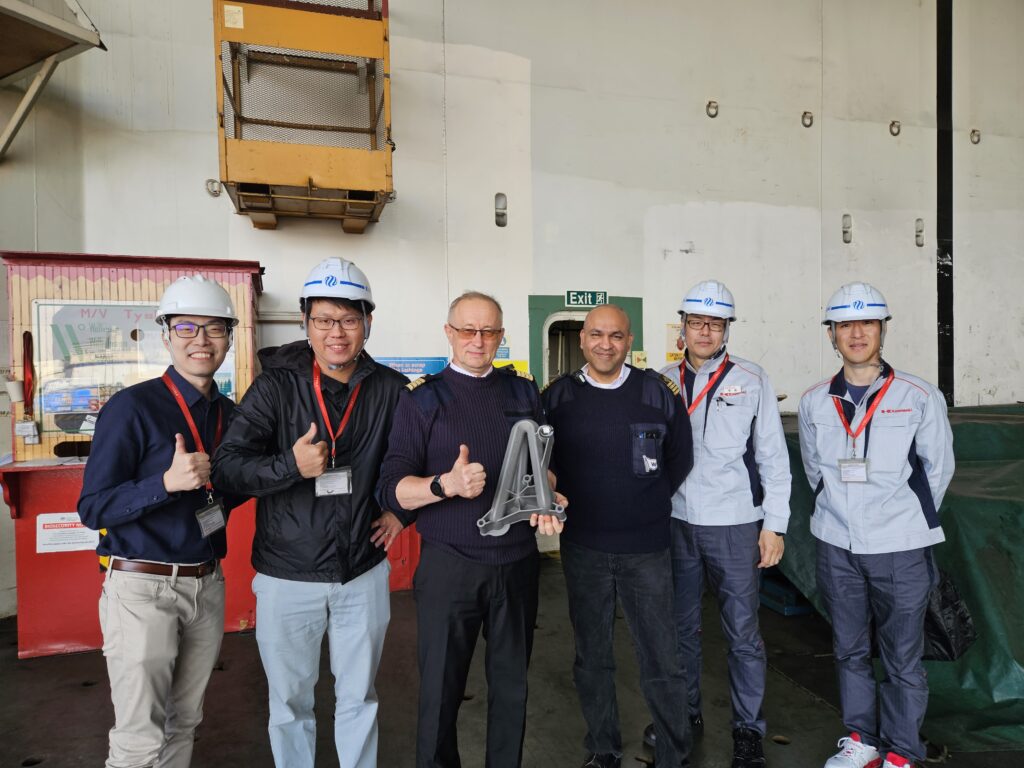Pelagus 3D successfully delivered a Return Oil Standpipe at Kobe, Japan, to be installed on vessel TYSLA.
This pioneering collaboration involved Kawasaki Heavy Industries and Wilhelmsen Ship Management. The part was delivered to vessel TYSLA, a RoRo vessel owned by Wallenius Wilhelmsen, and Wilhelmsen Ship Management is the ship manager.
Traditionally, the procurement, fabrication, and delivery of specific spare parts has been a time-consuming process, often leading to costly downtime for the maritime and offshore industries. However, with the advent of Additive Manufacturing (AM), also known as 3D Printing, the spare parts supply chain landscape is evolving rapidly.
AM spare parts can now solve issues including long lead time for fabrication or delivery of the part, poor performance by the traditionally manufactured part, and the lack of spare parts due to obsolescence.
The return oil standpipe was fabricated in Stainless Steel using an AM technology called Selective Laser Sintering (SLS). The SLS process utilises lasers to sinter, or fuse, powdered materials into a solid structure.
Through AM, the weight of the spare part was reduced by 90%, from 75kg using traditional manufacturing to approximately 8kg using AM. With a lightweight construction, it eliminates the need for a crane during installation, while also ensuring uninterrupted operations during maintenance.
The lead time for fabrication using AM was reduced to 15 days as compared to 135 days using traditional manufacturing. This lead time reduction meets the on-demand need for spare parts, shortening any vessel downtime.
Pelagus 3D partnered with Kawasaki Heavy Industries, a leading Original Equipment Manufacturer (OEM) of industrial machinery, to fabricate the traditionally manufactured part into an AM spare part.
Through Kawasaki Heavy Industries’ collaborative efforts, Pelagus 3D was able to determine the optimal component shape for the additively manufactured return oil standpipe. The new design combines 10 traditionally manufactured parts into 1 additively manufactured part.
To enhance the part performance, the return oil standpipe was re-designed to improve flow efficiency by ensuring smoother channels, with no sharp edges. This reduction in weight and material used in the return oil standpipe production ensures a more sustainable fabrication practice.
“We are very satisfied with this great result in this programme. Workability and safety during installation and replacement will be improving dramatically due to a 90% weight reduction by AM technology. This AM technology is one of the best suitable technologies for Sustainable Development Goals (SDG) because it can reduce the amount of material used. We expect to expand its application to various parts in the future,” said Yoshinori Daido, Lead Engineer of AM project for Marine Machinery, Kawasaki Heavy Industries.
The collaborative nature of the partners ensured the rapid production of the critical component and the on-time delivery to vessel TYSLA. This reinforces Pelagus 3D’s paradigm for the future of spare parts supply chain management.
As the maritime and offshore industry continues to embrace the possibilities offered by AM, this collaboration between Kawasaki Heavy Industries and Wilhelmsen Ship Management reinforces the progressive advancements of the spare parts supply chain.
“We are honoured to participate in this trial, exemplifying our dedication to revolutionising ship operations. The shortened lead time for spare parts will greatly enhance our response times, particularly for those challenging-to-source or phased-out components” said John Beck, Vice President Procurement, Wilhelmsen Ship Management.
With Pelagus 3D, end users and OEMs can access digital designs of spare parts that are stored securely, allowing for on-demand production whenever the need for spare parts arises. This digital inventory eliminates the constraints of physical storage and transportation, significantly reducing lead times and costs.
This partnership between end users and OEMs is setting the stage for a more efficient and resilient future for the maritime and offshore spare parts supply chain.


